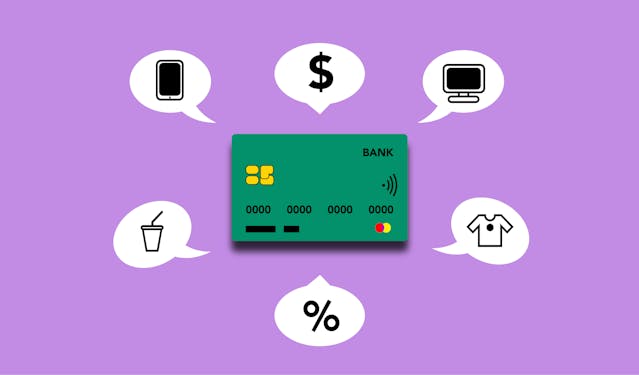Dubai is an important hub of global trade and attracts entrepreneurs and business owners from around the globe. Learn how to open a bank account as a non-resident in Dubai, including required documents and fees.
Establishing a local bank account in the UAE can simplify financial transactions; however, selecting an account, adhering to eligibility criteria, and gathering the necessary paperwork are important considerations.
Looking to open a company in Dubai? Explore our low-cost business setup services for registering a company in Dubai. Company formation in dubai is easy with us!
by southbridgelegal.com
Selecting a Bank
However, when opening a UAE bank account for non-residents it is crucial that they carefully select one that will meet their financial needs. Key aspects to keep in mind include fees and minimum balance requirements as well as any specific account details that might need to be added or adjusted before opening an account. It’s also a good idea to read all terms and conditions carefully to understand exactly what it entail before taking this step.

As a non-resident of the UAE, opening an account requires several documents such as copies of your passport and Emirates ID card; proof of address such as utility bills or rental agreements; a reference letter from a bank in your home country and proof of employment verification or income.
Although opening a bank account as a non-resident can be tedious, it’s an investment worth making for long-term financial security. Aside from strategic monetary benefits, opening an account in Dubai as a non-resident gives access to global banking opportunities that could expand your wealth. Working with professional business setup in dubai providers makes opening UAE bank accounts for non-residents much simpler; they provide bank account opening, VAT & tax consultation and PRO services among many other services.
By opening a UAE bank account as a non-resident, you will be able to use debit cards for transactions and purchases in the country, access online banking portal and transfer money between accounts easily. Please be aware that these accounts do not provide interest on funds deposited; instead, they’re useful for everyday transactions and quick access.
Documentation Requirements
Dubai is an iconic global business hub that draws entrepreneurs from around the globe, offering services both for residents and non-residents alike, including banking. However, opening bank accounts in Dubai as a non-resident can be dauntingly complex for small businesses – this requires selecting an institution before gathering all required documents such as passport copies, proof of residence documentation and financial statements for verification by banks in accordance with local laws.
Step two is submitting an application; this can be done either online or at a bank branch. When providing accurate and up-to-date information to expedite the process and be patient as the bank may require additional paperwork if needed.
As well as basic documents, you will require a no-objection letter from your sponsor/employer and a copy of your visa. Furthermore, proof of income that shows where it comes from must also be presented as well as documents showing company structure and ownership details if applicable.
Once you have submitted all necessary documentation to a bank, your application can be reviewed by them and updated if any additional information is needed. Once they have verified your identity and opened an account in your name with debit cards to use for transactions in UAE; fees and charges vary according to bank and account type.
Fees
Non-resident bank accounts enable expatriates living in Dubai and the other UAE cities to more efficiently manage their personal finances while conducting international transactions. Unfortunately, opening such an account isn’t straightforward: an expat needs to visit their bank in person and present numerous documents – including original passport with immigration seal and date of entry into country as well as proof of income and references letters from previous banks depending on its purpose.
Furthermore, banks may require that applicants present proof of address – this can include utility bills or lease agreements as examples – as well as additional documents to prove source of income such as salary certificates or tax credit certificates. It’s wise to organize all your documents beforehand for an easier visit to the bank.
Once they have collected all necessary documents, applicants need to fill out an application form and submit it directly to a bank representative for review and validation of details. Following this, the bank will contact them with instructions on how to log into their new accounts online.
Once applicants have successfully completed the account opening process, they can begin using their UAE bank accounts. Most banks provide debit cards that can be used at ATMs to withdraw funds as well as over 20 million retail outlets worldwide. Some even provide mobile apps that enable account holders to check balances and transaction history on-the-go.

No matter if you’re an expat relocating to Dubai from abroad or simply an online nomad looking for banking access, having access to non-resident accounts with reasonable fees and easy use is vital for settling into life here. Luckily, several banks in Dubai provide such accounts which make banking simple for non-residents.
Before selecting a bank for your personal account, conduct extensive research. Investigate its services, fee structure and minimum requirements before setting an appointment to meet with a representative from each option – they will explain their process and help select an account tailored specifically to your needs.
Document Requirements
The documentation requirements for opening a non-resident bank account depend on both your desired type and bank. Typically, you’ll require copies of your passport, utility bills and an no-objection letter from either your sponsor or employer – in some cases this might also include references letters from another bank as well as financial statements.
While some UAE banks may require you to submit your paperwork in person, others offer online forms with electronic submission options that you can submit via email or fax. Prior to submitting an application for loan approval, make sure you review the required documentation requirements thoroughly to ensure you possess everything required for application approval.
Once your application is submitted, it may take several weeks for the bank to process and approve your account. When done so, a confirmation email with login credentials will be sent directly to you. Keep in mind that some banks charge monthly maintenance fees or charge extra fees when making international transfers – to avoid these fees consider opening a multi-currency account that offers competitive exchange rates.
Debit Cards

Bank accounts in Dubai provide many advantages, from convenient banking services and products, to online access and no-objection letters from employers or visa sponsors. Non-residents must meet certain specifications such as minimum account balance requirements and international transfer fees to open one.
Additionally, it is crucial that you select a bank with competitive fees and service levels – this can save money over time. In addition, make sure that they offer flexible payment methods tailored specifically to your needs and compare interest rates to find the most favourable deal; many banks provide higher returns for high-value accounts.
Individuals looking to open a non-resident bank account in the UAE must present their passport, proof of residence and recent bank statements (3-6 months should suffice), while some banks also require a letter from one of their home country banks for verification and approval purposes – depending on which bank it may take anywhere between 1-3 weeks before approval is given.
An overseas bank account in the UAE can be an invaluable tool for global traders and investors, helping them manage their finances, make payments, receive invoices from abroad, save on exchange rates and transfer fees, as well as provide peace of mind by keeping assets secure and safe.










